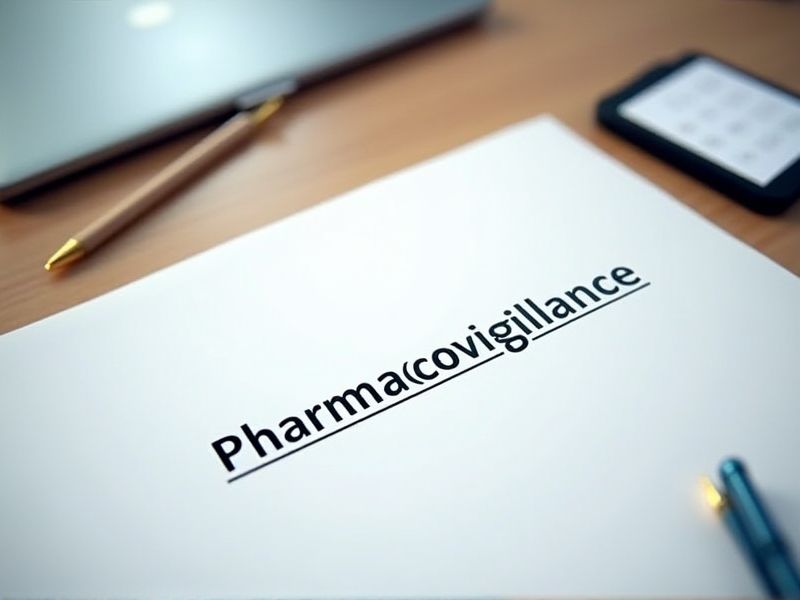
Pharmacovigilance Professionals play a crucial role in ensuring drug safety, necessitating a comprehensive understanding of regulations and safety protocols. Certifications offer structured training and a competitive edge, enhancing employability and career advancement. Given the complexity of drug oversight, these certifications ensure adherence to global standards and facilitate accurate reporting. Consider exploring these pivotal certifications required for Pharmacovigilance Professionals.
Certified Pharmacovigilance Professional (CPP)
Pharmacovigilance involves monitoring the safety and efficacy of pharmaceutical products, and a Certified Pharmacovigilance Professional (CPP) designation ensures expertise in these critical areas. Obtaining CPP certification standardizes knowledge across pharmacovigilance professionals, reducing discrepancies in drug safety assessments. The structured approach of CPP training enhances the capability to identify, assess, and mitigate potential adverse drug reactions. Regulatory compliance becomes more streamlined with CPP certification, as professionals are updated with the latest pharmacovigilance regulations and practices.
Drug Safety & Pharmacovigilance Certification (DSPC)
The Drug Safety & Pharmacovigilance Certification (DSPC) equips pharmacovigilance professionals with comprehensive knowledge of drug safety regulations and monitoring processes, resulting in more effective oversight. This certification enhances their ability to accurately report and assess adverse drug reactions, reducing potential medication-related risks. It signifies a credible standard that aligns with international safety guidelines, thus improving trust and collaboration with global regulatory bodies. DSPC certification increases job prospects and career advancement by demonstrating validated expertise in the field.
Advanced Certificate in Pharmacovigilance (ACP)
Pharmacovigilance professionals require an Advanced Certificate in Pharmacovigilance (ACP) because it equips them with up-to-date knowledge of drug safety regulations and guidelines. The certification enhances their ability to identify, assess, and communicate risks associated with pharmaceuticals effectively. Employers value the ACP as it demonstrates a professional's commitment and expertise in monitoring adverse drug reactions. Holding the ACP can increase career advancement opportunities and professional validation in the competitive field of pharmacovigilance.
Good Pharmacovigilance Practices (GVP) Certification
Good Pharmacovigilance Practices (GVP) Certification provides pharmacovigilance professionals with validated knowledge and skills crucial for monitoring drug safety. Certification enhances the credibility and reliability of professionals in managing adverse drug reactions, which directly impacts patient safety. Training with GVP standards ensures compliance with global regulatory requirements, reducing the risk of non-compliance penalties for organizations. Certified professionals contribute to improved public health outcomes by promoting effective risk management and safety reporting practices.
Regulatory Affairs Certification (RAC)
Regulatory Affairs Certification (RAC) provides a foundational understanding of global regulatory frameworks, which is crucial for pharmacovigilance professionals in ensuring compliance with drug safety regulations. Having RAC certification enhances credibility and demonstrates expertise in regulatory matters, allowing professionals to effectively navigate complex submission processes. As pharmacovigilance involves monitoring the safety of pharmaceutical products post-market, knowledge gained through RAC helps in addressing regulatory requirements efficiently. The certification also equips professionals with skills to update and align safety profiles with evolving international standards.
Certified Clinical Research Professional (CCRP)
The Certified Clinical Research Professional (CCRP) credential ensures that a pharmacovigilance professional possesses standardized knowledge and skills in clinical research, which is crucial for monitoring drug safety. Certification also demonstrates proficiency in regulatory compliance, enhancing trustworthiness in handling adverse event data. The CCRP credential supports more effective communication between stakeholders by aligning methodologies in drug safety assessments. Earning this certification can lead to career advancement and increased credibility in the pharmacovigilance field.
Clinical Data Management Certification (CCDM)
Clinical Data Management Certification enhances data accuracy, ensuring reliable pharmacovigilance reporting. With rigorous training, professionals decrease data-related errors, improving patient safety outcomes. Certified individuals exhibit proficiency in regulatory compliance, aligning with global pharmacovigilance standards. Access to advanced data management techniques optimizes signal detection and risk assessment in pharmaceuticals.
Project Management Professional (PMP)
Pharmacovigilance requires precise management of drug safety processes, and PMP certification equips professionals with the skills to effectively organize complex projects. It instills a structured approach, enhancing the ability to adhere to regulatory compliance and timelines. PMP knowledge improves risk management strategies, essential in assessing and mitigating drug-related risks. Effective communication and stakeholder management in pharmacovigilance are bolstered through PMP-trained frameworks, facilitating clear reporting and collaboration.
Certificate in Medical Writing for Pharma
A Certificate in Medical Writing for Pharma equips pharmacovigilance professionals with essential skills to effectively communicate safety data and risk assessments to various stakeholders. This certification enhances their ability to produce clear and concise regulatory documents, critical for meeting compliance standards. Improved writing proficiency supports the creation of accurate and informative reports, which is vital in monitoring drug safety. A recognized certificate boosts credibility and professional development, ensuring alignment with industry best practices.
ISO 9001 Quality Management Certification
ISO 9001 Quality Management Certification ensures that pharmacovigilance professionals adhere to standardized processes, promoting consistency in monitoring drug safety. Enhanced credibility stems from this certification, as it signifies a commitment to quality and safety oversight essential in the pharmaceutical industry. Certification facilitates improved risk management, which is pivotal in identifying and addressing potential drug-related adverse effects efficiently. ISO 9001 promotes continual improvement, encouraging professionals to regularly update and refine their safety protocols and methodologies.
Summary
When you, as a pharmacovigilance professional, obtain certifications, industry credibility enhances significantly. These credentials often lead to increased job opportunities and potential for career advancement. Mastery in regulatory guidelines and risk management becomes evident, boosting your decision-making confidence. Organizations may also demonstrate greater trust in your capability to ensure drug safety and compliance.
